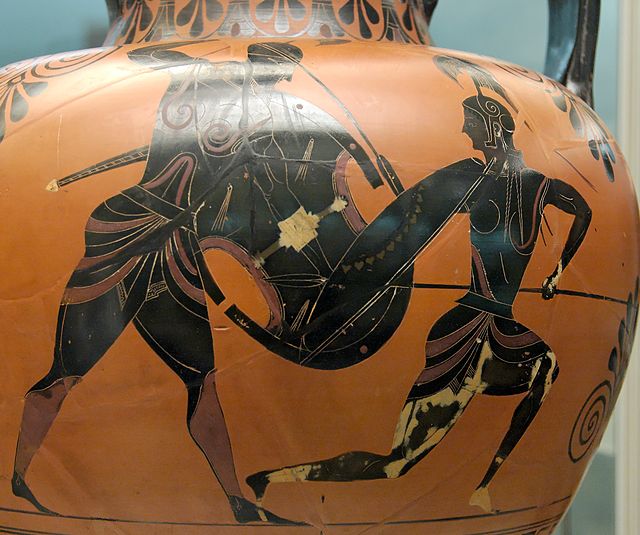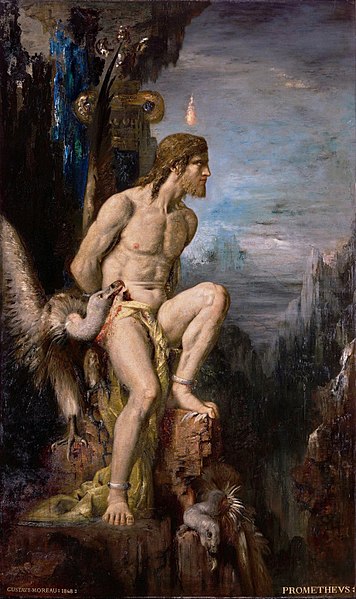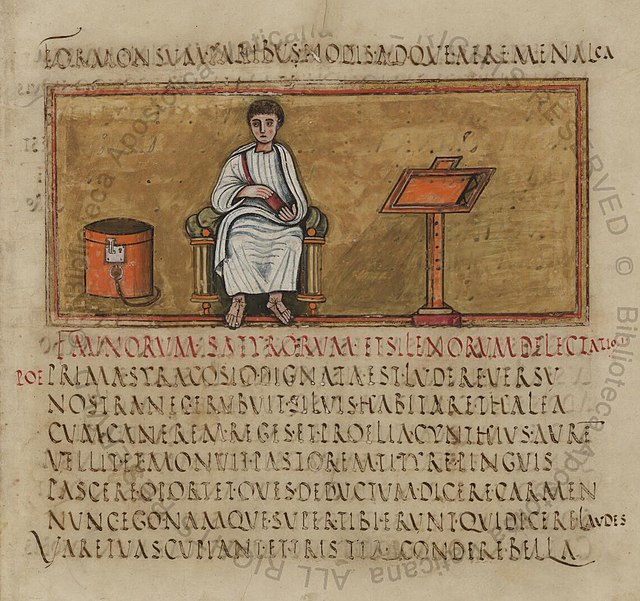Religious practices in ancient Greece encompassed a collection of beliefs, rituals, and mythology, in the form of both popular public religion and cult practices. The application of the modern concept of "religion" to ancient cultures has been questioned as anachronistic. The ancient Greeks did not have a word for 'religion' in the modern sense. Likewise, no Greek writer known to us classifies either the gods or the cult practices into separate 'religions'. Instead, for example, Herodotus speaks of the Hellenes as having "common shrines of the gods and sacrifices, and the same kinds of customs."
Aegeus at right consults the Pythia or oracle of Delphi. Vase, 440–430 BCE. He was told "Do not loosen the bulging mouth of the wineskin until you have reached the height of Athens, lest you die of grief", which at first he did not understand.
Aphrodite riding a swan: Attic white-ground red-figured kylix, c. 460, found at Kameiros (Rhodes)
Asclepios, god of medicine. Marble Roman copy (2nd century CE) of a Greek original of the early 4th century BCE. Asclepios was not one of the Twelve Olympians, but popular with doctors like Pausanias, and their patients.
The Judgment of Paris by Peter Paul Rubens (c. 1636), depicting the goddesses Hera, Aphrodite and Athena, in a competition that causes the Trojan War. This Baroque painting shows the continuing fascination with Greek mythology
Greek mythology is the body of myths originally told by the ancient Greeks, and a genre of ancient Greek folklore, today absorbed alongside Roman mythology into the broader designation of classical mythology. These stories concern the ancient Greek religion's view of the origin and nature of the world; the lives and activities of deities, heroes, and mythological creatures; and the origins and significance of the ancient Greeks' cult and ritual practices. Modern scholars study the myths to shed light on the religious and political institutions of ancient Greece, and to better understand the nature of myth-making itself.
Achilles and Penthesileia by Exekias, c. 540 BC, British Museum, London
Prometheus (1868 by Gustave Moreau). The myth of Prometheus first was attested by Hesiod and then constituted the basis for a tragic trilogy of plays, possibly by Aeschylus, consisting of Prometheus Bound, Prometheus Unbound, and Prometheus Pyrphoros.
The Roman poet Virgil, here depicted in the fifth-century manuscript, the Vergilius Romanus, preserved details of Greek mythology in many of his writings.
Phaedra with an attendant, probably her nurse, a fresco from Pompeii, c. 60 – c. 20 BC








